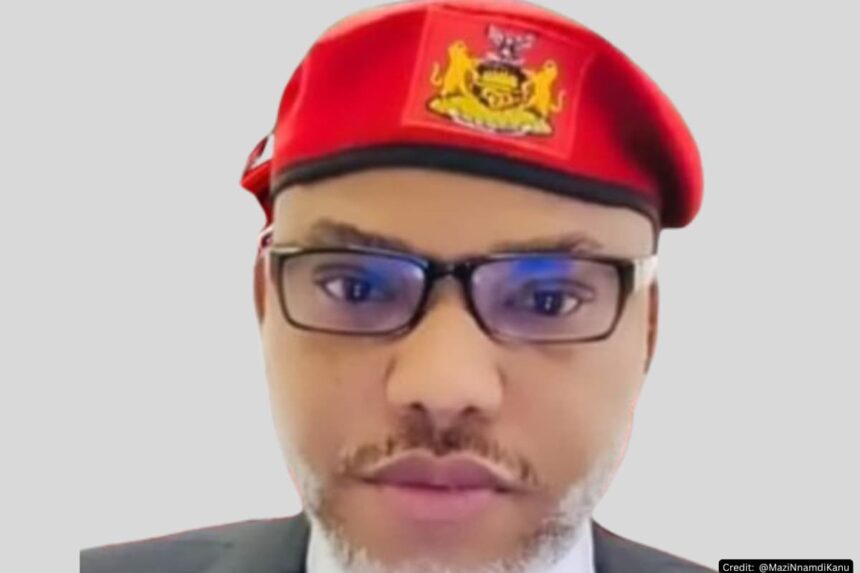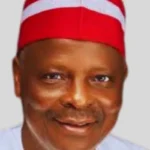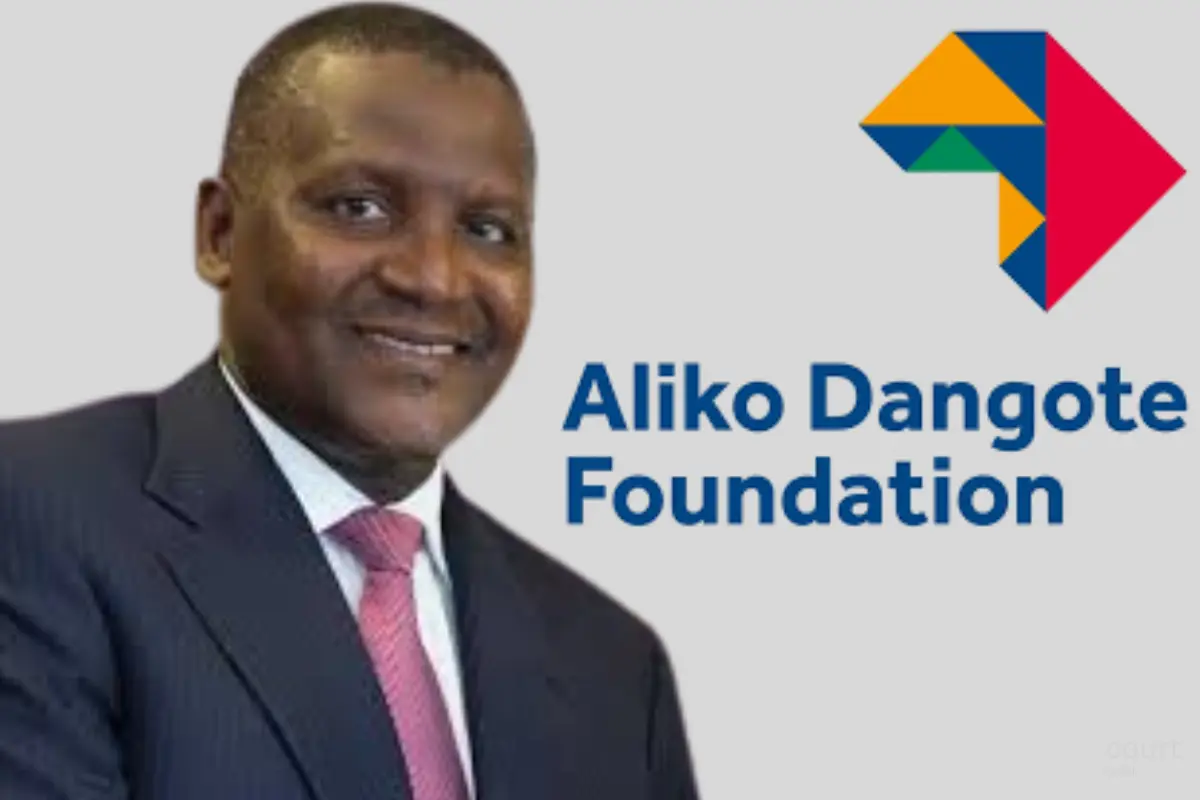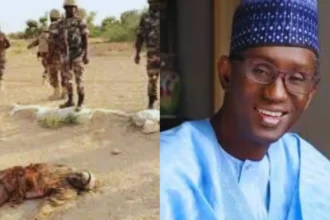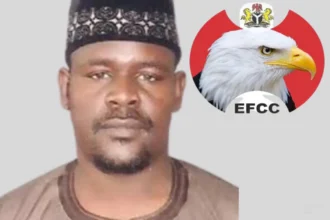Nnamdi Kanu, leader of the Indigenous People of Biafra (IPOB), has dismissed any notion that his release should come through an appeal for mercy, insisting instead that the Nigerian government must abide by existing court rulings that have declared his detention illegal.
The lawyer to the detained leader of the Indigenous People of Biafra (IPOB), Aloy Ejimakor, issued a statement clarifying that Kanu neither authorized nor endorsed anyone to beg for his freedom. He maintained that the ongoing detention of the separatist leader violates both domestic and international laws, and therefore, securing his release should be a matter of legal compliance, not political negotiations.
The statement comes after Benjamin Kalu, Deputy Speaker of the House of Representatives, publicly urged President Bola Tinubu to grant Kanu freedom as a gesture of goodwill. Kalu made the appeal following the inaugural meeting of the House Committee on the South-East Development Commission (SEDC) in Abuja, commending Tinubu for his commitment to peace and progress in the region.
However, Kanu’s legal team stressed that his continued detention remains unlawful and politically motivated. Ejimakor relayed Kanu’s stance, highlighting key points below:
- His Release is a Legal Right, Not a Favor
Kanu insists that the Federal High Court has already ruled against his detention, and international tribunals have echoed the same verdict. He believes the government should simply follow the law by setting him free. - Self-Determination is Not a Crime
The IPOB leader maintains that his struggle for self-determination is legally protected under Nigerian and international laws. He argues that framing his activism as a criminal offense is unjust and should not warrant any form of plea for clemency. - Pardon Requests Could Undermine the Rule of Law
Kanu warned that asking for mercy could send the wrong message, legitimizing the government’s disregard for court rulings. He insists that his supporters should advocate for his release based on legal grounds rather than emotional appeals. - Government Should Take Responsibility for His Rendition
He asserts that it is the Nigerian government, not him, that should seek atonement for his extraordinary rendition—an act deemed illegal under international law. - Appreciation for Ongoing Advocacy
Kanu expressed gratitude to various groups, including Afenifere, Ohaneze Ndigbo, and the World Igbo Congress, for their continued calls for his release. He also commended efforts aimed at restoring stability in the South-East.
Despite multiple legal rulings affirming his right to freedom, Kanu remains in detention. His legal team continues to push for compliance with court judgments, arguing that justice must prevail over political maneuvering.
